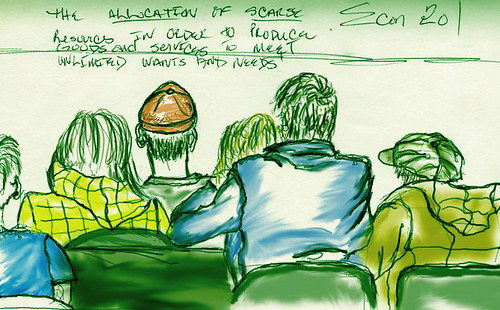 Physorg | A genetic tendency to depression is much less likely to be realized in a culture centered on collectivistic rather than individualistic values, according to a new Northwestern University study.
Physorg | A genetic tendency to depression is much less likely to be realized in a culture centered on collectivistic rather than individualistic values, according to a new Northwestern University study.In other words, a genetic vulnerability to depression is much more likely to be realized in a Western culture than an East Asian culture that is more about we than me-me-me.
The study coming out of the growing field of cultural neuroscience takes a global look at mental health across social groups and nations.
Depression, research overwhelmingly shows, results from genes, environment and the interplay between the two. One of the most profound ways that people across cultural groups differ markedly, cultural psychology demonstrates, is in how they think of themselves.
"People from highly individualistic cultures like the United States and Western Europe are more likely to value uniqueness over harmony, expression over agreement, and to define themselves as unique or different from the group," said Joan Chiao, the lead author of the study and assistant professor of psychology in the Weinberg College of Arts and Sciences at Northwestern.
In contrast, people from collectivist cultures are more likely to value social harmony over individuality. "Relative to people in an individualistic culture, they are more likely to endorse behaviors that increase group cohesion and interdependence," Chiao said.
Collectivist cultures may give individuals who are genetically susceptible to depression a tacit or explicit expectation of social support. "Such support seems to buffer vulnerable individuals from the environmental risks or stressors that serve as triggers to depressive episodes," Chiao said.
The study by Chiao and Northwestern graduate student Katherine Blizinsky, "Culture-gene coevolution of individualism-collectivism and the serotonin transporter gene," will be published online in the journal Proceedings of the Royal Society B: Biological Sciences.
The study compared genetic frequency information and cultural value data across 29 countries (major European countries as well as South Africa, Eastern Europe, South Asia, East Asia and South America). The serotonin transporter gene (STG) that the researchers studied has two variants - a short allele and a long allele. In Western populations, the short allele leads to a phenotype of major depressive episodes when people who carry it experience multiple life stressors.


0 comments:
Post a Comment